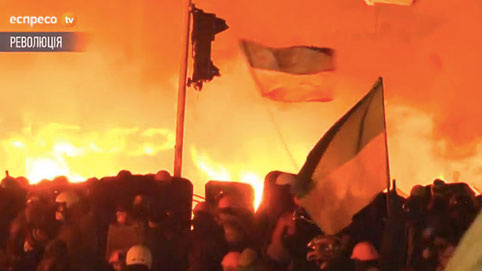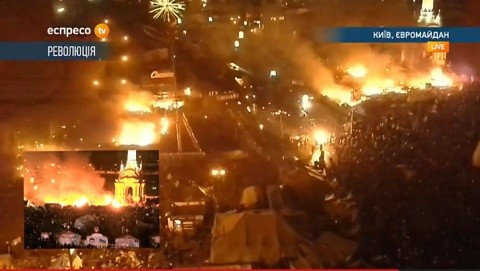February 19, 2014
The bloody events in Kiev came as the most shocking wake-up call that in today's world toothless, lofty rhetoric is way off the mark. Brussels misunderstood the severity of the crisis as well as the power of Russian influence over Ukraine. Sofia just pretended to misunderstand, trying to tease neither Russia, nor EU.
The bloody events in Kiev came as the most shocking wake-up call that in today's world toothless, lofty rhetoric is way off the mark. Brussels misunderstood the severity of the crisis as well as the power of Russian influence over Ukraine. Sofia just pretended to misunderstand, trying to tease neither Russia, nor EU.
Just three months ago, when Ukraine's refusal to sign the long-discussed association and free-trade agreements with the EU triggered massive pro-European protests in the country, Bulgarian analysts said a second Orange Revolution was out of the question.
“The world has changed. Today's Ukraine is a very different Ukraine. Today's Europe is a very different Europe from back then,” they argued.
Three months ago Brussels and Sofia thought the protests will not turn into another overwhelming, euphoric movement like in 2004 due to fear of Russia and the consequences that Russia was painting on the wall.
They argued that it is realistic for Ukraine to seek to make the most of its ties with both Russia and the EU.
They forecast that if the government handles its communication with protesters in a fast and intelligent manner, the rallies will die down in days.
They proved wrong big time.
The bloody events in Kiev came as the most shocking wake-up call that in today's world – namely because it has changed - toothless, lofty rhetoric is way, way off the mark.
The bloodshed made painfully clear that three months ago Ukraine really had no option – it had to drop EU for Russia or otherwise it would have been crushed.
It also made painfully clear that President Viktor Yanukovych's image – promoted by the former Communists-turned-Socialists in Bulgaria - as a leader, who just tries to conduct a balanced foreign policy, cautious not to frustrate the powerful Russia or drive away the generous Europe, is monstrous distortion of reality.
Brussels misunderstood the severity of the crisis as well as the power of Russian influence over Ukraine. Sofia just pretended to misunderstand, trying to tease neither Russia, nor EU.
In Sofia, the reaction now is confused and too general.
In Brussels, the question now is how (in)decisive the European Union will be in its long-term offers - not only to Ukraine, but also Georgia and Moldova.
Putin has aggressively made it it clear he will fight and resort to all means available to stop them from being pulled further into Europe’s orbit.


